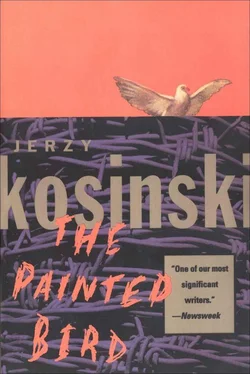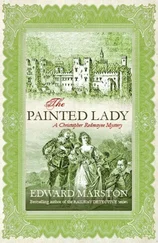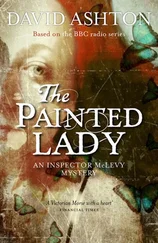Jerzy Kosiński - The Painted Bird
Здесь есть возможность читать онлайн «Jerzy Kosiński - The Painted Bird» весь текст электронной книги совершенно бесплатно (целиком полную версию без сокращений). В некоторых случаях можно слушать аудио, скачать через торрент в формате fb2 и присутствует краткое содержание. Год выпуска: 1965, ISBN: 1965, Жанр: Детская проза, на английском языке. Описание произведения, (предисловие) а так же отзывы посетителей доступны на портале библиотеки ЛибКат.
- Название:The Painted Bird
- Автор:
- Жанр:
- Год:1965
- ISBN:978-0-8021-9575-3
- Рейтинг книги:4 / 5. Голосов: 1
-
Избранное:Добавить в избранное
- Отзывы:
-
Ваша оценка:
- 80
- 1
- 2
- 3
- 4
- 5
The Painted Bird: краткое содержание, описание и аннотация
Предлагаем к чтению аннотацию, описание, краткое содержание или предисловие (зависит от того, что написал сам автор книги «The Painted Bird»). Если вы не нашли необходимую информацию о книге — напишите в комментариях, мы постараемся отыскать её.
The Painted Bird — читать онлайн бесплатно полную книгу (весь текст) целиком
Ниже представлен текст книги, разбитый по страницам. Система сохранения места последней прочитанной страницы, позволяет с удобством читать онлайн бесплатно книгу «The Painted Bird», без необходимости каждый раз заново искать на чём Вы остановились. Поставьте закладку, и сможете в любой момент перейти на страницу, на которой закончили чтение.
Интервал:
Закладка:
The soldiers said that the windows of Stalin’s study in the Kremlin were lit late into the night and that the people of Moscow, along with all the working masses of the world, looked toward those windows and found new inspiration and hope for the future. There the great Stalin watched over them, worked for them all, devised the best ways of winning the war and destroying the enemies of the working masses. His mind was filled with concern for all suffering people, even those in distant countries still living under terrible oppression. But the day of their liberation was approaching, and to bring that day nearer Stalin had to work late into the night.
After I learned all these things from Gavrila, I often walked in the fields and thought deeply. I regretted all my prayers. The many thousands of days of indulgence I had earned with them were wasted. If it were true that there was no God, no Son, no Holy Mother, nor any of the lesser saints, what had happened to all my prayers? Were they perhaps circling in the empty heaven like a flock of birds whose nests had been destroyed by boys? Or were they in some secret place and, like my lost voice, struggling to get free?
Recalling some of the phrases in those prayers, I felt cheated. They were, as Gavrila said, filled only with meaningless words. Why hadn’t I realized it sooner? On the other hand, I found it hard to credit that the priests themselves did not believe in God and used Him only to fool other people. And what about the churches, Roman and Orthodox? Were they also built, as Gavrila said, merely for the purpose of intimidating people through God’s presumed power, forcing them to support the clergy? But if the priests acted in good faith, what would happen to them when they suddenly discovered that there was no God, and that above the highest church dome there was only a boundless sky where airplanes with red stars painted on their wings flew? What would they do when they discovered that all their prayers were worthless and that everything they did at the altar, and everything they told people from the pulpit, was a fraud?
The discovery of that terrible truth would strike them down with a blow worse than a father’s death or the last glimpse of his lifeless body. People had always been comforted by their belief in God, and they usually died before their children. Such was the law of nature. Their only consolation was the knowledge that, after their death, God would guide their children through their lives on this earth, just as the children found their only solace in the thought that God would greet their parents beyond the grave. God was always in people’s minds, even when He Himself was too busy to listen to their prayers and keep track of their accumulated days of indulgence.
Eventually Gavrila’s lessons filled me with a new confidence. In this world there were realistic ways of promoting goodness, and there were people who had dedicated their whole lives to it. These were the Communist Party members. They were selected from the whole population and given special training, set particular tasks to perform. They were prepared to endure hardship, even death, if the cause of the working people required it. The Party members stood at that social summit from which human actions could be seen not as meaningless jumbles, but as part of a definite pattern. The Party could see farther than the best sniper. That was why every member of the Party not only knew the meaning of events, but also shaped them and directed them toward new aims. That was why no Party member was ever surprised at anything. The Party was to the working people what the engine is to a train. It led others toward the best goals, it pointed out shortcuts to an improvement of their lives. And Stalin was the engineer at the throttle of this engine.
Gavrila always returned hoarse and exhausted from Party meetings which were long and tempestuous. The Party members evaluated each other at these frequent meetings; each of them would criticize the others and himself, give praise where due, or point out shortcomings. They were particularly aware of events around them, and they always endeavored to forestall the harmful activities of people under the influence of priests and landlords. Through their constant watchfulness the members of the Party became tempered like steel. Among the Party members there were young and old, officers and enlisted men. The strength of the Party, as Gavrila explained, lay in its ability to rid itself of those who, like a jammed or crooked wheel on a cart, impeded progress. This self-purging was done at the meetings. It was there that members acquired the necessary toughness.
There was about it something immensely captivating. One looked at a man dressed like everyone else, working and fighting as they all did. He seemed to be just another soldier in a great army. But he might be a member of the Party; in a pocket of his uniform, over his heart, he might be carrying his Party card. Then he changed in my eyes as did sensitized paper in the darkroom of the regimental photographer. He became one of the best, one of the chosen, one of those who knew more than the others. His judgment carried more force than a box of explosives. Others grew silent when he spoke, or spoke more carefully when he listened.
In the Soviet world a man was rated according to others’ opinion of him, not according to his own. Only the group, which they called “the collective,” was qualified to determine a man’s worth and importance. The group decided what could make him more useful and what could reduce his usefulness to others. He himself became the composite of everything others said about him. Learning to know a man’s inner character was a never-ending process, Gavrila said. There was no way of knowing that at its bottom, as in a deep well, there might not lurk an enemy of the working people, an agent of the landlords. That is why a man had to be continually watched by those around him, by his friends and enemies alike.
In Gavrila’s world the individual seemed to have many faces; one of them might be slapped while another was being kissed, and yet another went temporarily unnoticed. At every moment he was measured by yardsticks of professional proficiency, family origin, collective or Party success, and compared with other men who might replace him at any time or who might be replaced by him. The Party looked at a man simultaneously through lenses of different focus, but unvarying precision; no one knew what final image would emerge.
To be a Party member was indeed the goal. The path to that summit was not easy, and the more I learned about the life of the regiment the more I realized the complexity of the world in which Gavrila moved.
It seemed that to reach the pinnacle a man must climb simultaneously many ladders. He might have been already halfway up on the professional ladder while just starting out on the political one. He might have been ascending one and descending the other. Thus his chances of reaching the summit altered, and the peak, as Gavrila said, was often one step forward and two steps back. Besides, even after reaching this peak, one might easily fall and have to start the climb all over again.
Because a person’s rating depended in part on one’s social origin, one’s family background counted even if one’s parents were not living. A man had a better chance of ascending the political ladder if his parents were industrial workers rather than peasants or office clerks. This shadow of their family trailed people relentlessly, just as the concept of original sin hounded even the best Catholic.
I was filled with apprehension. Though I could not remember my father’s exact occupation, I recalled the presence of cook, maid, and nurse, who would surely be classified as victims of exploitation. I also knew that neither my father nor my mother had been a worker. Would it mean that, just as my black hair and eyes were held against me by the peasants, my social origin could handicap my new life with the Soviets?
Читать дальшеИнтервал:
Закладка:
Похожие книги на «The Painted Bird»
Представляем Вашему вниманию похожие книги на «The Painted Bird» списком для выбора. Мы отобрали схожую по названию и смыслу литературу в надежде предоставить читателям больше вариантов отыскать новые, интересные, ещё непрочитанные произведения.
Обсуждение, отзывы о книге «The Painted Bird» и просто собственные мнения читателей. Оставьте ваши комментарии, напишите, что Вы думаете о произведении, его смысле или главных героях. Укажите что конкретно понравилось, а что нет, и почему Вы так считаете.












